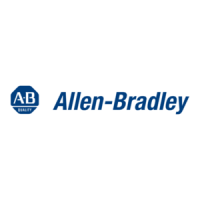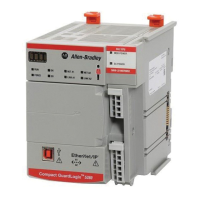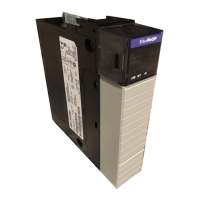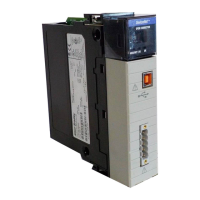274 Rockwell Automation Publication MOTION-RM003I-EN-P - February 2018
Tune Acceleration
Usage Access T Data
Type
Default Min Max Semantics of Values
Required - C Get/GSV
REAL - - - Position Units / Sec
2
The Tune Acceleration attribute returns the measured peak acceleration of the
last successful Inertia Test service. This value is used to calculate the Tune Inertia
Mass value of the axis, and is also used to determine the tuned values for the
Maximum Acceleration attribute. The Tune Acceleration value represents the
estimated acceleration at the configured torque limit of the system.
Tune Deceleration
Usage Access T Data
Type
Default Min Max Semantics of Values
Required - C Get/GSV
REAL - - - Position Units / Sec
2
The Tune Deceleration attribute returns the measured peak deceleration of the
last successful Inertia Test service. This value is used to calculate the Tune Inertia
Mass value of the axis, and is also used to determine the tuned values for the
Maximum Deceleration attribute. The Tune Acceleration value represents the
estimated deceleration at the configured torque limit of the system.
Tune Inertia Mass
Usage Access T Data
Type
Default Min Max Semantics of Values
Required - C Set/SSV
REAL 0 0
% Motor Rated / (Motor
Units/Sec
2
)
The Tune Inertia Mass value represents the estimated inertia or mass for the axis
as calculated from the measurements made during the last Motion Run Axis Tune
(MRAT) initiated tuning process. This value may also be set directly by software
tuning tools or programmatically.
Tune Friction
Usage Access T Data
Type
Default Min Max Semantics of Values
Required - C Set/SSV
REAL 0 0
% Rated
This floating point value represents the amount of friction measured during the
last successful Inertia Test profile. This value can be used to configure the Friction
Compensation feature of the drive. This value may also be set directly by software
tuning tools or programmatically.
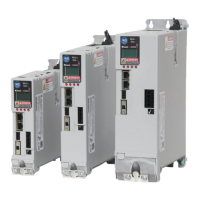
